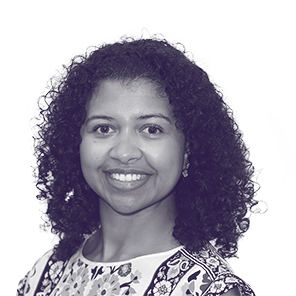Developing educational leadership skills as an early career academic
By guest blogger, on 28 September 2021
By Megan Armstrong, on 24 September 2021
I am a GP, researcher and educationalist at UCL and I thought I would document some of the milestones in my early academic development. As part of my training I was fortunate to be awarded an NIHR Academic Clinical Fellowship (ACF), which has been an amazing opportunity to develop my research and teaching skills.
My research has included studies on frailty, dementia and Parkinson’s, for example conducting reviews. However, I knew at the start of my ACF that as well as research, I wanted to gain teaching experience and achieve outputs, such as accreditation as Fellow of the Higher Education Academy / HE Advance (FHEA). At UCL we are very fortunate to be encouraged to develop both research and educational skills. Below I outline the main teaching I was involved in, what I got out of it and suggestions/tips for others who may be interested in developing educational leadership skills as an early career academic.
Teaching experience at UCL
As a GP registrar in my 3rd year (ST3) I became a module lead for Preparation for Practice (PfP), part of the Year 4 MBBS programme. My roles included designing simulated patient cases for the students, direct teaching, supporting other GP tutors and administration staff, course evaluation and quality assurance. I also led the transition from face-to-face delivery to online as Covid hit, developing recorded (asynchronous) and live webinar (synchronous) material.
In my 4th year of training (ST4) I decided to get experience of small group teaching in my GP practice as a Medicine in the Community (MIC) tutor, for two UCL medical students over the academic year. Students spent 10 days in my GP practice in total, and I got to see them improve clinically while I gained personal tutoring skills. Sessions included an interactive workshop on a disease /condition, formative assessment in the shape of MCQs, role play and patient interactions between students and my NHS patients who gave up their time to help.
What I got out of it
I love teaching and find it incredibly rewarding! The variety of teaching experiences helped break up my academic time and focus when working on different project. These experiences included:
- Face to face teaching,
- Online teaching,
- Developing teaching material,
- Evaluation teaching activities and
- Quality assurance
These experiences also contributed to my successful fellowship applications and being awarded a UCL Excellence in Medical Education award (EMEA) (see here).
I was also fortunate to get some outputs, including presentations, awards and publications: Medical student mentoring programs: current insights and The UCL ‘Preparation for Practice’ teaching programme.
 Reflections
Reflections
Balancing GP training (exams and completing my compulsory training portfolio), research and teaching can be challenging, at times I definitely felt like I was juggling many balls and just about managing not to drop any! The extra academic day in my 4th year helped but only because I taught less on the PfP programme, which gave me more time do practice based (MIC) teaching. Having boundaries and recognising when my plate was full also helped. For example, during my final GP (MRCGP) exams I tried not to do too much else.
Teaching was most enjoyable when I linked it to my research. This included selecting patients from under-represented groups for students to interact with in their GP teaching sessions, which complemented my clinical research project exploring how people from under-represented groups self-manage Parkinson’s disease. As my teaching was informed by the research I was doing, it also saved time when it came to lesson planning.
Finally, most of my academic time was during the pandemic and teaching not only helped me network with other academics within the department but also with hospital registrars doing acute medicine and acting as teaching fellows, academic pharmacists and academic clinicians from a range of specialties based at the medical school main campus.
Tips
Tips for other early career academics:
- Say ‘Yes’ to opportunities
- Recognise limitations; i.e., Time! It is impossible to do everything but you can make a real impact to programmes if you focus on a select few.
- Look for a variety of educational experiences. For example, online vs in person teaching, design teaching vs evaluation
- Try and get some outputs, e.g., presentations, higher education fellowships like the FHEA
- Link it to your research!
- Discuss with current ACFs and module leads to get an idea of what is best for you.
I would encourage all early career academics to gain teaching experience and hope this has inspired some to do so!
References
- Nimmons D, Hatter L, Davies N, Sampson EL, Walters K, Schrag A. Experiences of advance care planning in Parkinson’s disease and atypical parkinsonian disorders: a mixed methods systematic review. Eur J Neurol. 2020 Oct;27(10):1971-1987. doi: 10.1111/ene.14424. Epub 2020 Jul 30. PMID: 32603525.
- Nimmons D, Giny S, Rosenthal J. Medical student mentoring programs: current insights. Adv Med Educ Pract. 2019 Mar 4;10:113-123. doi: 10.2147/AMEP.S154974. PMID: 30881173; PMCID: PMC6404673.
- Nimmons D, Jones MM. The UCL ‘Preparation for Practice’ teaching programme. Med Educ. 2020 Nov;54(11):1077-1078. doi: 10.1111/medu.14326. Epub 2020 Sep 3. PMID: 32885435.
 Close
Close


